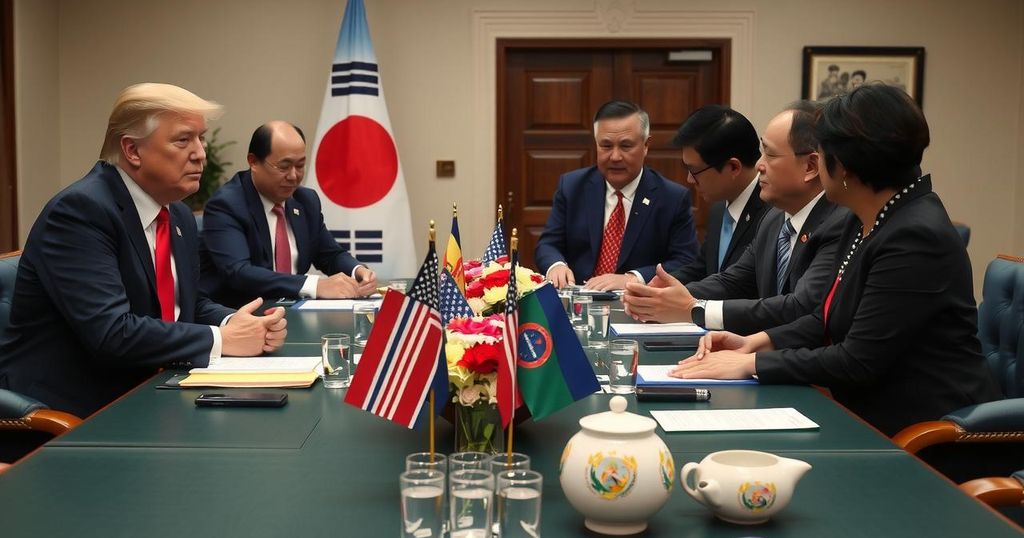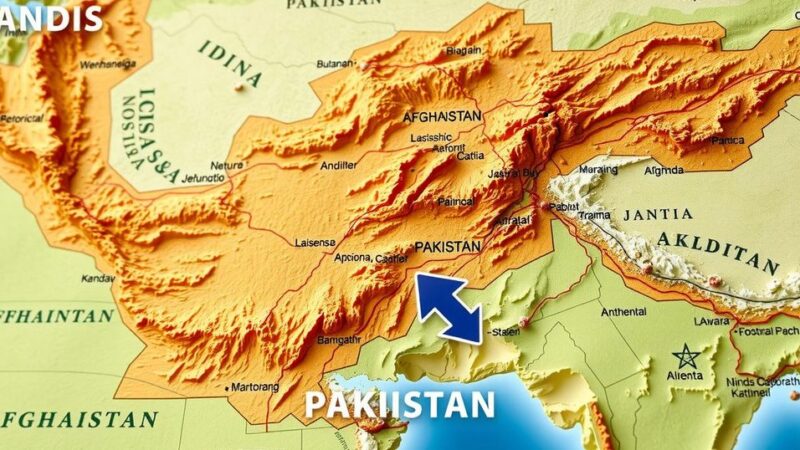Uncertainty surrounds President-elect Trump’s Korea policy amidst his cabinet appointments. Key figures like Marco Rubio and Mike Waltz suggest a hard-line stance towards North Korea, while potential nominees for defense and intelligence could advocate for engagement. The evolving political situation in South Korea and Trump’s past rapport with Kim Jong-un complicate the expectations of U.S. foreign policy in the region.
As uncertainties loom over President-elect Donald Trump’s policy towards Korea in his second term, various indicators emerge from his cabinet selections. Notably, Trump has chosen Senator Marco Rubio as Secretary of State and Representative Mike Waltz as National Security Adviser, both figures known for their internationalist perspectives and staunch approaches to China. Rubio, a veteran of Korean policy discussions in the Senate, has consistently criticized North Korean leadership and advocated for stronger sanctions and defense commitments to Seoul.
Waltz, a seasoned veteran, appears aligned with Rubio’s hard-line stance on China and North Korea, although he may support new engagement with Pyongyang, reflecting an evolving perspective that prioritizes dealing with Iran as the primary U.S. threat. The Deputy National Security Adviser, Alex Wong, has prior experience in North Korean diplomacy, hinting at continuity in engaging with Pyongyang.
Trump’s CIA nominee, John Ratcliffe, has also expressed openness to negotiations with North Korea, suggesting they may view nuclear capabilities as a means to assert international standing while remaining open to concessions in exchange for sanctions relief. On the other hand, Trump’s potential nominees for defense and intelligence roles, Pete Hegseth and Tulsi Gabbard, bring a divergent perspective that favors engagement and critiques of U.S. military interventions.
As tensions in South Korea involve President Yoon Suk Yeol’s controversial actions, including a proposed martial law, Trump’s inclination to engage directly with North Korea could be strengthened. Although Kim Jong-un’s threats of escalating anti-U.S. policies signal resistance, they might also signify a strategic move to provoke more direct negotiations with Trump. “I got along well” with Kim, Trump has remarked, reinforcing a potential pivot towards diplomacy in the region, despite ongoing challenges.
The geopolitical landscape surrounding North Korea remains complex and multifaceted as President-elect Donald Trump begins to strategize his second term. The recent appointments within his cabinet provide insight into potential shifts in U.S. foreign policy towards Korea. Trump’s past interactions with North Korean leader Kim Jong-un highlight the ongoing dilemma between military and diplomatic options in addressing nuclear proliferation and regional security. Analysts observe contrasting factions within Trump’s prospective administration, which may influence his broader approach toward both Korea and China, ultimately reflecting a delicate balance of strategy amid persistent threats.
In conclusion, the trajectory of U.S. policy towards Korea under President-elect Trump remains a subject of significant speculation. The cabinet appointments suggest a blend of hard-line and diplomatic approaches, indicating a potential dual strategy focused on containment and engagement. The political dynamics in South Korea, alongside Kim Jong-un’s provocations, may further influence Trump’s decisions. Ultimately, careful observation of the administration’s first moves will be essential to understand the future direction of U.S.-Korean relations.
Original Source: www.koreatimes.co.kr







